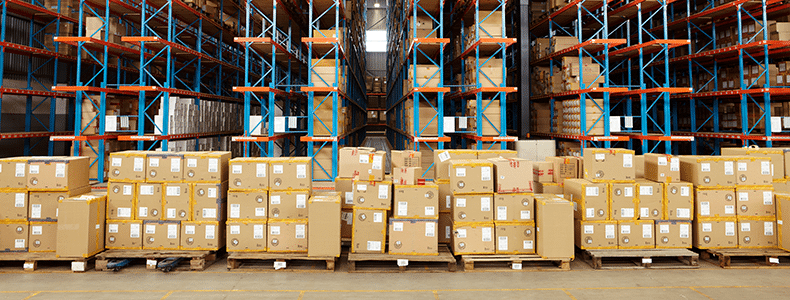The rapid evolution of technology is reshaping industries around the globe, and the logistics sector is no exception. Advanced technologies like Artificial Intelligence (AI) and the Internet of Things (IoT), which is a term used to describe the digital interconnectedness of devices, are revolutionizing the way we think about supply chain management. This transformation is not merely a trend but a comprehensive shift that is essential for staying competitive in an increasingly efficient and digital world.
Here, we’ll look at some of the findings from a report by IBM that outlines the changes that are set to happen as we move forward.
Integrating AI and IoT into the Supply Chain
The integration of AI and IoT into the supply chain facilitates a more connected and intelligent logistics landscape. AI’s ability to analyze vast amounts of data and generate insights allows for more accurate demand forecasting and operational efficiency. This technology is essential for optimizing shipping routes, matching shipments with the right carriers, and predicting potential issues before they escalate into significant problems.
Quick Stats
Here are a few key takeaways from the report that we found interesting.
- 92% of outperforming manufacturing executives believe AI and cognitive computing will enhance performance in production planning.
- 86% of outperforming supply chain executives surveyed said cognitive computing will transform their demand planning and forecasting capabilities.
- 54% of financial outperformers are using cognitive computing to improve material quality and risk management, which is 31% more than financial underperformers.
- 51% of financial outperformers are focusing on AI-driven sales and operations planning.
- 88% of the highest-performing organizations surveyed report that AI is inevitable in their industry.
- 95% of the highest-performing organizations see AI as central to their innovation success.
- More than 700 outperformers (12% of the total sample) report annual revenue growth and profit increases of more than 5% over the past three years, attributing success to advanced AI and cognitive technologies.
- AI and cognitive computing are expected to significantly impact supply chain visibility and collaborative decision making, enhancing supply chain networks worldwide.
Predictive Analytics: A Game Changer in Supply Chain Management

Predictive analytics, fueled by machine learning algorithms, plays a pivotal role in modern supply chains. By analyzing historical data and current market trends, this technology can forecast demands and adjust pricing strategies dynamically. Such capabilities enable shippers to optimize their operations and provide carriers with opportunities to maximize their earnings, ensuring a competitive edge.
As mentioned above, IBM’s research indicates that 92% of outperforming manufacturing executives believe AI and cognitive computing will enhance performance in production planning – that means a massive shift is coming.
IoT: Enhancing Visibility and Reliability
The deployment of IoT technology in the supply chain enhances transparency and tracking, offering real-time updates and insights. This level of visibility is crucial for maintaining the reliability of deliveries—key metrics that define success in logistics. IoT devices help monitor the status of shipments continuously, allowing for immediate adjustments and informed decision-making along the supply chain.
AI-Driven Efficiency: From Matching to Delivery
AI significantly streamlines the logistics process by intelligently matching shipments with the most suitable carriers. This process not only enhances the efficiency of the supply chain but also contributes to environmental sustainability by reducing unnecessary mileage. Furthermore, AI-driven systems are capable of managing and automating customer service interactions, which improves the user experience by providing swift and accurate responses to inquiries.
The Impact of Cognitive Technologies on Supply Chain Strategy

The adoption of cognitive technologies in the supply chain goes beyond operational efficiency. These technologies are setting new standards in the logistics industry, driving innovation, and providing unprecedented levels of strategic insight. Companies leveraging these advanced tools are not only keeping pace with industry trends but are also paving the way for future developments.
Emphasizing Operational Excellence
According to IBM’s insights, supply chain executives are aggressively developing digital strategies that include IoT on mobile, collaborative, and cloud-based platforms. They are applying predictive analytics more rapidly to all supply chain processes, further automating digital manufacturing, customer service, and distribution with robotics and drones.
This holistic digital transformation is enhancing operations with AI, leading to unprecedented levels of operational excellence. Specifically, 86% of outperforming supply chain executives surveyed said cognitive computing would transform their demand planning and forecasting capabilities.
Preparing for a Digitally Driven Future
As the logistics industry continues to evolve, the integration of AI and IoT will play a critical role in shaping its future. The ongoing investment in these technologies is crucial for developing a more efficient, transparent, and responsive supply chain. This era of digital transformation offers significant opportunities for companies to innovate and improve their operational capabilities.
In embracing these technological advancements, the logistics sector is poised to transform significantly, offering more predictive and responsive solutions to meet the dynamic needs of the global market. For industry leaders and newcomers alike, understanding and implementing these technologies will be key to navigating the future of supply chain management.
uShip is on the forefront of embracing these advancements. Let’s talk about how we can help make you more efficient.



